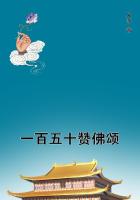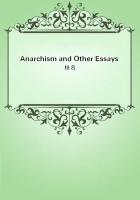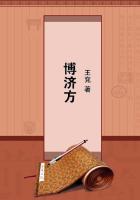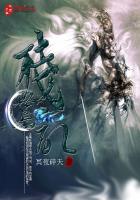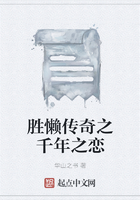"About three o'clock in the afternoon, Houston ordered the attack. The seven hundred Americans were divided into three bodies. I saw Houston in the very centre of the line, and I have a confused memory of Milard and Lamar, Burleson and Sherman and Wharton, in front of their divisions."
"Were the Mexicans expecting the attack, father?"
"They were in perfect order, Antonia; and when Sherman shouted the battle-cry: `REMEMBER THE ALAMO! GOLIAD AND THE ALAMO!' it was taken up by the whole seven hundred, and such a shout of vengeance mortal ears never heard before. The air was full of it, and it appeared to be echoed and repeated by innumerable voices.
"With this shout on our lips, we advanced to within sixty paces of the Mexican lines, and then a storm of bullets went flying over our heads. One ball, however, shattered Houston's ankle, and another struck his horse in the breast. But both man and horse were of the finest metal, and they pressed on regardless of their wounds. We did not answer the volley until we poured our lead into their very bosoms. No time for reloading then. We clubbed our rifles till they broke, flung them away and fired our pistols in the eyes of the enemy; then, nothing else remaining, took our bowie-knives from our belts and cut our way through the walls of living flesh."
Lopez rose at the words. It was impossible for him to express himself sufficiently in an attitude of repose. His eyes glowed like fire, his dark face was like a flame, he threw up his hands as he cried:
"Nothing comparable to that charge with knives was ever made on earth! If I had seen through the smoke and vapor the mighty shade of Bowie leading it, I should not have been surprised."
"Perhaps indeed, he did lead it," said the Senora, in a solemn voice. "I saw yes, by all the saints of God! I saw a great host with my Juan. They stretched out vast, shadowy arms--they made me FEEL what I can never tell. But I shall honor Senor Houston. I shall say to him some day. `Senor, the unseen battalions--the mighty dead as well as the mighty living--won the battle.' Roberto, believe me, there are things women understand better than wise men."
A little awe, a solemn silence, answered the earnest woman.
Luis and Isabel came close to her, and Isabel took her hand.
Lopez resumed the conversation. "I know Colonel Bowie," he said. "In the last days at San Antonio I was often with him.
Brave as a lion, true to his friends, relentless to his foes, was he. The knife he made was the expression of his character in steel. It is a knife of extreme unction--the oil and wafer are all that remains for the men who feels its edge.
For my part, I honor the Senora's thought. It is a great satisfaction to me to hope that Bowie, and Crockett, and Travis, and Fannin, and all their company were present at San Jacinto. If the just God permitted it, 'twas a favor of supreme justice."
"But then you are not alone in the thought, Lopez. I heard General Sherman say, `Poor Fannin! He has been blamed for not obeying Houston's orders. I THINK HE OBEYED THEM TO-DAY.'
At the moment I did not comprehend; but now it is plain to me.
He thought Fannin had been present, and perhaps it was this belief made him so impetuous and invincible. He fought like a spirit; one forgot that he was flesh and blood."
"Sherman is of a grand stock," said the doctor; descended from the wise Roger Sherman; bred in Massachusetts and trained in all the hardy virtues of her sons. It was from his lips the battle-cry of `REMEMBER THE ALAMO!' sprang."
"But then, Roberto, nothing shall persuade me that my countrymen are cowards."
"On the contrary, Maria, they kept their ground with great courage. They were slain by hundreds just where they stood when the battle began. Twenty-six officers and nearly seven hundred men were left dead upon the field. But the flight was still more terrible. Into the bayou horses and men rolled down together. The deep black stream became red; it was choked up with their dead bodies, while the mire and water of the morass was literally bridged with the smothered mules and horses and soldiers."
"The battle began at three o'clock; but we heard the firing only for a very short time," said Antonia.
"After we reached their breastworks it lasted just eighteen minutes. At four, the whole Mexican army was dead, or flying in every direction, and the pursuit and slaughter continued until twilight. Truly an unseen power made all our moves for us. It was a military miracle, for our loss was only eight killed and seventeen wounded."
"I am sorry Houston is among the wounded."
"His ankle-bone is shattered. He is suffering much. I was with him when he left the field and I was delighted with his patience and dignity. The men crowded around him. They seized his bridle; they clasped his hands. `Have we done well to-day, General? Are you satisfied with us?' they cried.
"`You have covered yourselves with glory,' he answered. `You have written a grand page in American history this day, boys. For it was not for fame nor for empire you fought; but for your rights as freemen, for your homes and your faith.'
"The next moment he fell from his horse and we laid him down at the foot of an oak tree. He had fainted from loss of blood and the agony of his wound, combined with the superhuman exertions and anxieties of the past week."
"But he is better now?"
"Yes; I dressed the wound as well as my appliances permitted; but he will not be able to use his foot for some time. No one slept that night. Weary as the men were, their excitement and happiness were too great for the bonds of sleep. In the morning the rich spoils of the enemy's camp were divided among them. Houston refused any part in them. `My share of the honor is sufficient,' he said. Yet the spoils were very valuable ones to men who but a few hours before had nothing but the clothing they wore and the arms they carried. Among them were nearly one thousand stand of English muskets, three hundred valuable mules, one hundred fine horses, provisions, clothing, tents, and at least twelve thousand dollars in silver."

